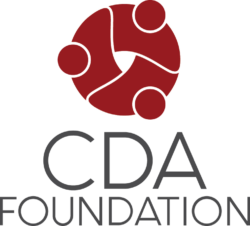
Heiner Wedemeyer, Tammo L. Tergast, Jeffrey V. Lazarus, Homie Razavi, Kostas Bakoyannis, Ricardo Baptista-Leite, Marco Bartoli, Philip Bruggmann, Cristian-Silviu Busoi, Maria Buti, Manuel Carballo, Laurent Castera, Massimo Colombo, Rodrigo Sousa Coutinho, Yuval Dadon, Gamal Esmat, Rafael Esteban, Joan Colom Farran, Mark Gillyon-Powell, David Goldberg, Sharon Hutchinson, Harry L. A. Janssen, George Kalamitsis, Loreta A. Kondili, John S. Lambert, Rui Tato Marinho, Mojca Maticic, Aldo Patricello, Markus Peck-Radosavljevic, Stanislas Pol, Mario Poljak, Cora Pop, Tomislov Sokol, Vana Sypsa, Nurdan Tözün, Zobair Younossi, Alessio Aghemo, George V. Papatheodoridis, Angelos Hatzakis
Summary
In 2016, the Hepatitis B and C Public Policy Association (HepBCPPA), gathered all the main stakeholders in the field of hepatitis C virus (HCV) to launch the now landmark HCV Elimination Manifesto, calling for the elimination of HCV in the EU by 2030. Since then, many European countries have made progress towards HCV elimination. Multiple programmes—from the municipality level to the EU level—were launched, resulting in an overall decrease in viremic HCV infections and liver-related mortality. However, as of 2021, most countries are not on track to reach the 2030 HCV elimination targets set by the WHO. Moreover, the COVID-19 pandemic has resulted in a decrease in HCV diagnoses and fewer direct-acting antiviral treatment initiations in 2020. Diagnostic and therapeutic tools to easily diagnose and treat chronic HCV infection are now well established. Treating all patients with chronic HCV infection is more cost-saving than treating and caring for patients with liver-related complications, decompensated cirrhosis or hepatocellular carcinoma. It is more important than ever to reinforce and scale-up action towards HCV elimination. Yet, efforts urgently need the dedicated commitment of policymakers at all governmental and policy levels. Therefore, the third EU Policy Summit, held in March 2021, featured EU parliamentarians and other key decision makers to promote dialogue and take strides towards securing wider EU commitment to advance and achieve HCV elimination by 2030. We have summarized the key action points and reported the ‘Call-to-Action’ statement supported by all the major relevant European associations in the field.
